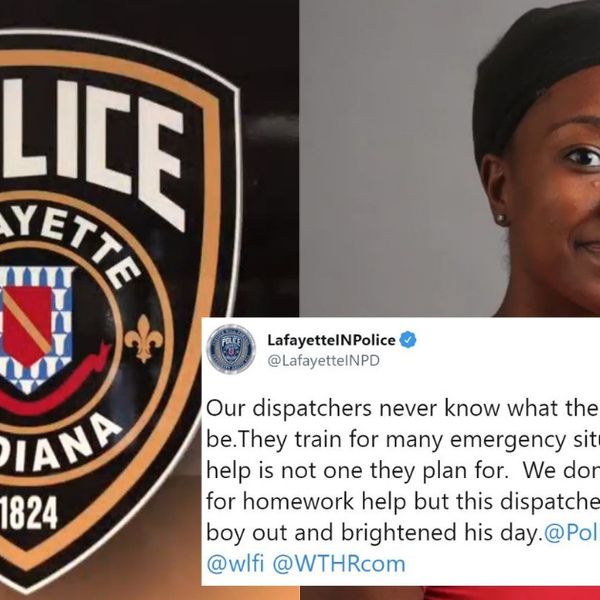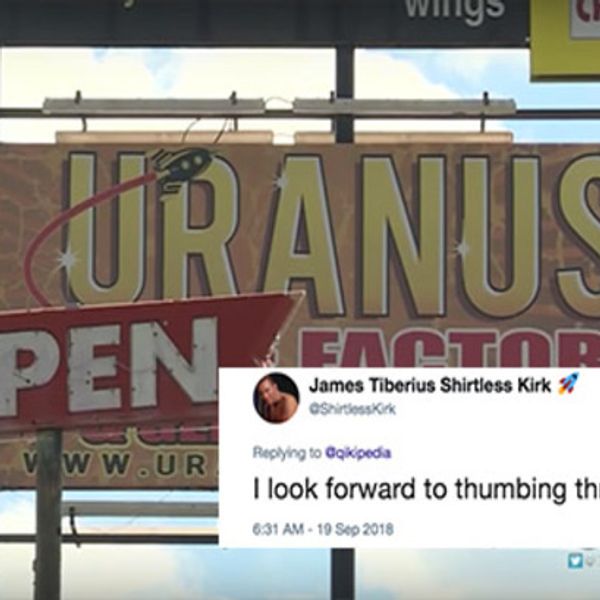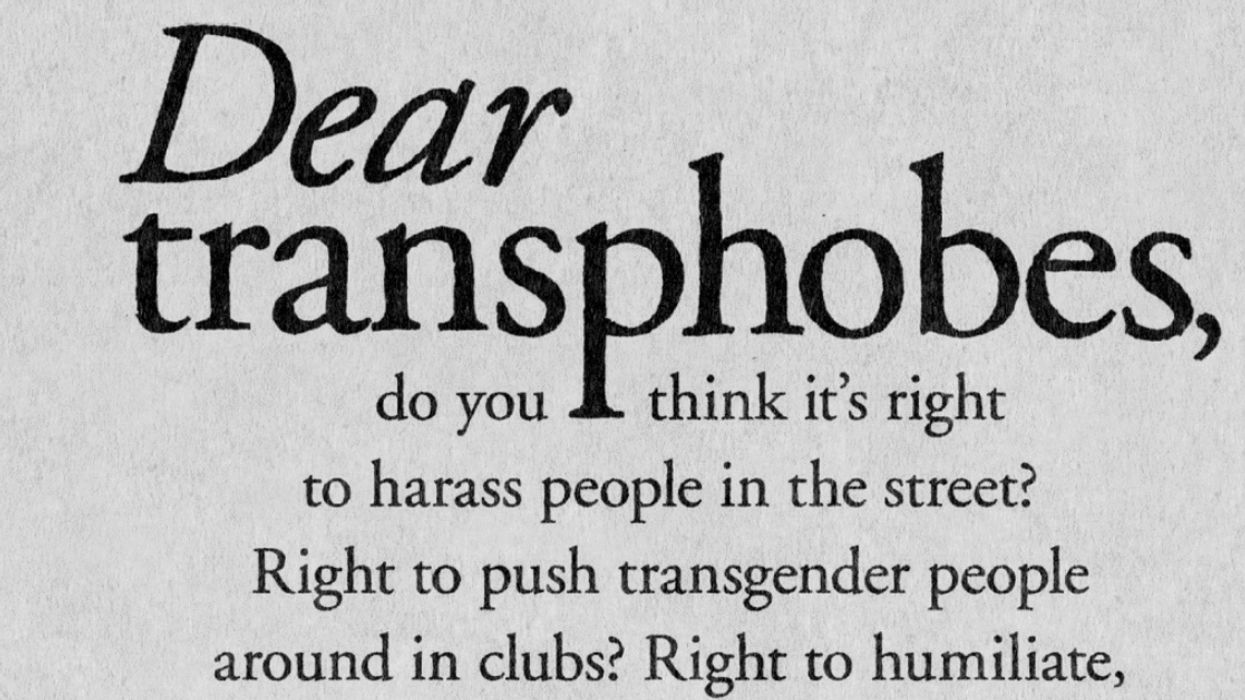January, 2002 I felt a rising sense of gravity as I was driven toward Manhattan. I'd just completed my engagement with Slanted Fedora Entertainment's Star Trek convention at the Meadowlands in New Jersey. The skyline of Manhattan was clearly visible in the crisp, mid-morning light. I saw the elegantly tapered silhouette of the Empire State Building once again dominant as the tallest structure on the horizon. The vacancy in that skyline was heartrending. It was almost as if I were being driven to visit the grieving family of a deceased friend - except that I, too, was a member of that family.
As we emerged from the Lincoln Tunnel into the relentless hurley-burley of 42nd Street, it was almost comforting to be engulfed by the familiar New York assault on the senses. Neon lights blazed in broad daylight. Traffic noise blared in competition with each other. And the unyielding mass of humanity still poured through the streets with determination. New York was resiliently, vibrantly alive.
 The next morning, I went on my pilgrimage to "Ground Zero," the place of the devastated remains of the World Trade Center. There was a long line to the viewing platform that had been built just east of the site. It snaked past the wrought iron fence surrounding the cemetery of old St Paul's Chapel dating back to 1780. The fence had become a grieving wall covered with photos, letters, Christmas wreaths, and other offerings posted in memory of the deceased and missing. They were bright, young people with ascendant careers. They were seniors ready to enjoy retirement. They were janitors and restaurant workers. They were people with names of every ethnicity in the world. When I read a letter addressed to "My little brother, our dearest son," my emotions wouldn't be contained. Tears ran cold down my cheeks. Snowflakes were falling softly. They reminded me of the ashes that fell from the sky that horrible September morning.
The next morning, I went on my pilgrimage to "Ground Zero," the place of the devastated remains of the World Trade Center. There was a long line to the viewing platform that had been built just east of the site. It snaked past the wrought iron fence surrounding the cemetery of old St Paul's Chapel dating back to 1780. The fence had become a grieving wall covered with photos, letters, Christmas wreaths, and other offerings posted in memory of the deceased and missing. They were bright, young people with ascendant careers. They were seniors ready to enjoy retirement. They were janitors and restaurant workers. They were people with names of every ethnicity in the world. When I read a letter addressed to "My little brother, our dearest son," my emotions wouldn't be contained. Tears ran cold down my cheeks. Snowflakes were falling softly. They reminded me of the ashes that fell from the sky that horrible September morning.
 When I reached the platform, I was stunned by the sheer enormity of the site. Sixteen acres of barrenness where once there had been structures teeming with the energy of global commerce and the two tallest office towers in the United States -- all only memories now. In their place was a vast emptiness. Only a great hole in the ground with a tangled mess remained. Tractors moved somberly among the rubble, clearing the wreckage. Only the day before, the remains of another person had been found. Surrounding this huge void were scarred, soot covered, vacant buildings, some covered with black netting like shrouds of mourning. That snowy January morning, I relived in my mind and bore witness to the horror and pain of the morning of September 11, 2001.
When I reached the platform, I was stunned by the sheer enormity of the site. Sixteen acres of barrenness where once there had been structures teeming with the energy of global commerce and the two tallest office towers in the United States -- all only memories now. In their place was a vast emptiness. Only a great hole in the ground with a tangled mess remained. Tractors moved somberly among the rubble, clearing the wreckage. Only the day before, the remains of another person had been found. Surrounding this huge void were scarred, soot covered, vacant buildings, some covered with black netting like shrouds of mourning. That snowy January morning, I relived in my mind and bore witness to the horror and pain of the morning of September 11, 2001.
I bore witness to the results of that dreadful day, but I know New Yorkers who actually lived through the terrors of the atrocity. Through friends with the Asian American Legal Defense and Education Fund, I arranged to have lunch with one of the heroes of September 11th, Officer David Lim of the Port Authority Police Department. A native New Yorker, he told his story in the punchy accent distinctive of Queens. Officer Lim is with the Canine Patrol in the World Trade Center. He was in the basement of the South Tower with his dog named Sirius inspecting the incoming cars when his walkie-talkie crackled that there was an explosion in the North Tower. His first thought was that someone had gotten a bomb past them up into the building.

He left his dog in the basement kennel and ran to the North Tower. On pure adrenaline, he rushed up 44 floors past fleeing people in roughly 20 minutes. There were office workers still sitting at their desks too stunned to react. Officer Lim went from floor to floor making sure everybody got out. He was in the stair well at around the 27th floor, when the whole building started to vibrate and rumble. It was the South Tower, which had been hit second but collapsed first, coming down. The North Tower was still upright. He urgently needed to get everyone out quickly. Officer Lim continued bellowing at the top of his voice, "Down is good. Down is good." When he reached the fifth floor, suddenly the entire building began to shudder with an indescribable sound combining an approaching train with an avalanche. He heard the snapping of pipes and cracking of concrete together with the deafening roar as they began to fall. He remembered thinking, "If I'm gonna die, please God, make it fast." Then there was silence. Miraculously, he and two other officers found themselves together and alive, trapped in a pocket. They were imprisoned in that cranny for about five hours before they were able to claw their way out. He ended his story by telling us, "My dog died in the collapse of the South Tower. I know exactly where Sirius is. They still haven't gotten to him yet."
I had dinner with Stan Honda, a photojournalist friend, who took photographs of the attack on the World Trade Center that have now become iconic. His picture of an African American woman completely covered in ash, looking shell-shocked and almost ghost-like, staggering away from the wreckage was published in virtually every newspaper and magazine in the world. Fortune Magazine used his photo of the ash-coated businessman, still in full suit and tie, still carrying his briefcase, on its cover. As I reminisced with Stan about my trips to New York in the early 70's, noting on each flight the progress of the steel skeletons of the World Trade Center as it worked its way 110 stories up into the sky, he shared with me his panic working frenetically as the great structures came roaring down.
A photo exhibit titled "Faces of Ground Zero" opened at Grand Central Station while I was in New York. I made a date to get together with my actress friend, Pat Suzuki, for lunch and a viewing of the exhibit. The display was made up of bigger than life-size photos of the heroes of the tragedy taken with a giant camera the size of a small room. The oversized images of people that we would ordinarily call "common guys" -- firefighters, police officers, medical workers, spouses of those that didn't survive, and others -- were profoundly moving. They were "common guys" caught in an extraordinarily uncommon situation who rose to the full challenge of the occasion with uncommon valor. They were the faces of the muscles and energy of working New York. They were the faces of the diversity of New York -- Hispanic, white, black, Asian and, yes, Middle Eastern. They were indeed, the faces of American resolve and American unity. Those faces and the quotes accompanying them were, at once, deeply touching and so uplifting. Over lunch, Pat revealed to me that for a couple of months, she had gotten up at 4 a.m. in the morning to volunteer as a breakfast cook for the rescue workers at ground zero. It seems all New Yorkers were involved in one way or another. They are all kindred.
After New York, I flew to Park City, Utah, for the Sundance Film Festival. I had worked on a small, independent film titled, "Noon Blue Apples" last year and it was to be premiered as part of the festival. I had been to the Venice Film Festival in Italy twice but this was my first visit to Sundance. What a contrast! It was as dramatic a difference as snow and water, as distinct as skis and gondolas.
However, there are also similarities. Both are storybook cities. Both places look like movie sets - one a floating Italian Renaissance capital turned popular tourist destination, the other an old western mining town turned ski resort. The energy, excitement, tensions, and partying are exactly the same. The overwhelming choices of film screenings are dizzyingly alike. Deal making seemed to be going on everywhere at Sundance, in restaurants, bars and even street corners. "Noon Blue Apples" is a psychological thriller by independent filmmaker Jay Lee with a fine performance by young actress, Lauren Fox. A member of the cast, actor Montel Williams, has a chalet in Park City and threw a lavish party for the cast, crew, press, and distributors. Jay and his producer sister, Angela Lee, were energetically wooing potential distributors.
During my four days at Sundance, I gorged myself on movies - from midnight screenings to early morning shows. But, like gorging on food, constant movie going can cause cinematic indigestion. I ingested some discomforting movies. Among them, however, were gems that I enjoyed greatly. "Love in the Time of Money" and "The Laramie Project" were impressive films with wonderful performances. But the very last movie I saw at Sundance before I left for the airport was the best. It was a 9 a.m. screening of an independent film starring Robin Williams titled "One Hour Photo." It was the highlight of my Sundance movie-going experience. First time feature director Mark Romanek had given Robin Williams his most challenging opportunity to stretch his creative muscles. And he rose fully to the challenge with a brilliant characterization of a sad and chilling loner. I predict that both Mark Romanek and Robin Williams will be Academy Award contenders next year.
Scotland Tackles Transphobia and Homophobia In Brilliant New Billboard Ads ❤️
The Scottish government has had enough of hate crimes and is moving forward with a gutsy campaign.
According to Pink News, Scotland is launching a new initiative to combat intolerance with messages respectively addressing "bigots," "disablists," "homophobes," "racists," and "transphobes" in a series of ads circulating across the country.
Each message is signed on behalf of Scotland.
The campaign is part of the Scottish government's One Scotland project in an effort to reduce hate crime.
One letter reads:
"Dear transphobes, do you think it's right to harass people in the street? Right to push transgender people around in clubs? Right to humiliate, intimidate and threaten them online? Well we don't."
"That's why if we see you doing harm, we're reporting you. We believe people should be allowed to be themselves. Except if they're spreading hate."
"Yours, Scotland."
In another letter, the country says it has a "phobia" of homophobic behavior.
"If you torment people because of who they love, shout word that we are not going to write, or use violence because you don't like who someone is holding hands with, you should be worried."
"If we see or hear your abuse, we're calling the police. That's because love lives in this country, not hate."
"Yours, Scotland."
One Scotland's website describes the organization as one that aims to continue building an inclusive society while recognizing the significant strides made so far towards equality.
"One Scotland embodies the inclusive society we want in Scotland, where equality and human rights are respected and every individual and minority group feels valued."
The website defines hate crimes as abuse that "can be verbal or physical and has hugely damaging effects on the victims, their families and communities, and we all must play our part to challenge it."
"Police Scotland takes hate crime very seriously. In the last year there were over 5,300 charges of hate crime reported to the Procurator Fiscal in Scotland1."
"However, there are many more incidents that go unreported. We all have a responsibility to report hate crime if we witness it – it's the only way we can challenge it, and put an end to it for good."
Justice minister Humza Yousaf is familiar with being a victim of a bigotry and is encouraging people to call out and report any incidents involving harassment.
"As somebody who has faced Islamaphobic and racial abuse over the years, I know how upsetting being a victim of hate can be. Hate crime and prejudice are completely unacceptable and we are absolutely committed to tackling it."
"We all have a role to play in stamping out prejudice and I would ask anyone who witnesses a hate crime to play their part and report it. Justice agencies such the police and Crown Office will deal sensitively with reports made and people should have confidence in how they will be treated. Last year there were over 5,300 charges of hate crime reported to the Procurator Fiscal in Scotland but there are still many incidents that are going unreported."
Henrietta Mochrie identifies as transgender and has been the victim of repeated harassment and abuse. She emphasized the importance of speaking out against the hatred.
"I'll often get street harassment, sometimes this has escalated to the point where I've been followed by people shouting abuse at me, just because of who I am."
"It makes me feel really down and scared to leave the house. It's important that if you witness hate crime that you report it to take a stand against hate."
One Scotland's ad campaign officially launched on Wednesday.
Hopefully, it won't take too long before other nations follow suit in this bold, yet necessary fight for equality.
H/T - OneScotland, PinkNews, Twitter
Katy Perry, P!nk, Paul McCartney And More Sign Letter Threatening To Boycott SiriusXM Radio
Hundreds of artists have signed a letter threatening a boycott if SiriusXM's parent company, Liberty Media, doesn't back down from opposing the Music Modernization Act.
The act, which was expected to pass through Congress, streamlines royalty payments in the new age of digital technology, but it seems SiriusXM is objecting to a small section that would have the satellite radio company paying royalties on recordings dating before 1972.
That's a whole lot of songs and a whole lot of money the company is hoping to skip out on paying, but not if stars like Paul McCartney, P!nk, Stevie Nicks, Sia, Carly Simon, Gloria Estefan, Mick Fleetwood, Don Henley, Max Martin, and Katy Perry can help it.
The letter read, in part:
I'm writing you with grave concern about SiriusXM's opposition to the Music Modernization Act (Classics Act included).
We are all aware of your company's objections and trepidation but let me say that this is an opportunity for SiriusXM to take a leadership position. As you are aware, 415 Representatives and 76 Senators have already cosponsored the MMA along with industry consensus. It's SiriusXM vs all of us. We can either fight to the bitter end or celebrate this victory together. Rather than watch bad press and ill will pile up against SiriusXM, why not come out supporting the most consequential music legislation in 109 years? We do not want to fight and boycott your company but we will as we have other opponents. Stand with us! Be brave and take credit for being the heroes who helped the MMA become historic law! Momentum is building against SiriusXM and you still have an opportunity to come out on the right side of history. We look forward to your endorsement but the fire is burning and only you can put this out.
SiriusXM resoponded with a letter of their own:
Over the past several weeks, we have been the subject of some stinging attacks from the music community and artists regarding our views on the Music Modernization Act. Contrary to new reports and letters, this is really not about a SiriusXM victory, but implementing some simple, reasonable and straightforward amendments to MMA. There is nothing in our "asks" that gut the MMA or kills the Act. So let's talk about the substance of the amendments we propose, because we truly do not understand the objections or why these concepts have incited such a holy war.ontrary to the accusations, SiriusXM has proposed three simple amendments to the MMA.
First, SiriusXM has asked that the CLASSICS Act recognize that it has already licensed all of the pre-1972 works it uses. This amendment would ensure that artists – the people who are supposed to be at the heart of the MMA – receive 50% of the monies under those existing licenses. Is that unfair? Just today, Neil Diamond wrote in the LA Times that: "I receive a small amount of songwriting royalties, but no royalties as the recording artist." How can that happen? To date, SiriusXM has paid nearly $250 million dollars in pre-'72 royalties to the record labels. We want to make sure that a fair share of the monies we have paid, and will pay, under these licenses gets to performers. Without this provision, artists may never see any of the money SiriusXM paid, and will pay, for the use of pre-1972 works. Artists not getting paid hurts our business!
Second, Sirius XM thinks that the fair standard to use in rate setting proceedings is the standard that Congress chose in 1995 and confirmed again in 1998 – which is called the 801(b) standard. However, we are willing to move the "willing buyer/willing seller" standard contained in the MMA. In exchange, we have asked for the same concession that the MMA grants to other digital music services, but we were left out of — simply that the rates that were set last year for five years now apply for ten years. We thought this was a fair compromise when we read the "new" MMA that was released this weekend by the Senate, and are willing to live by that compromise.
Third, SiriusXM is asking the simple question: "Why are we changing the rate court evidence standard for musical compositions in this legislation so that it gives another advantage to broadcasters over satellite radio and streaming services?" There is no policy rationale for this change to tilt the playing field further in their favor, and frankly no one has been able to explain it to us. It is only fair that we debate why the change to Section 114(i) is in the MMA.
Did you all catch that? It sounds like lawyer speak for "we don't really want to say where we stand."
It seems all the letters were for naught. The Music Modernization Act passed in the U.S. Senate.
It was time to celebrate and dance in the streets.
As the saying goes, honest pay for honest work.
Woman Was Fired For Refusing To Wear A Bra At Work—And Now She's Suing
Christina Schell, from Alberta, Canada, stopped wearing bras three years ago citing health reasons.
While Schell did not specify the health reasons, she did state she finds them to be "horrible."
But after her refusal to sign or adhere to a new enforced dress code policy to wear a bra or tank top under her work shirt at a golf course grill where she worked, Schell was promptly fired.
Now, the 25-year-old has filed a human rights violation against the Osoyoos Golf Club, Osoyoos, in British Columbia, Canada.
Schell said:
"I don't think any other human being should be able to dictate another person's undergarments."
When she asked the general manager, Doug Robb, why she had to comply, the manager told her the mandate was for her protection.
Robb allegedly said:
"I know what happens in golf clubs when alcohol's involved."
After losing her job, she brought the case to the British Columbia Human Rights Tribunal and told them the club's dress code was discriminatory because the rule didn't apply towards male employees.
Schell told CBC:
"It's gender-based and that's why it's a human rights issue. I have nipples and so do the men."
David Brown, an employment lawyer in Kelowna, BC, said gender-specific dress codes could be viewed as discriminatory under the BC Human Rights Code.
He stated:
"It's an interesting question as to whether or not an employer can dictate the underwear that women can wear, but they don't say anything about the underwear that men can wear, and does that create an adverse impact on the individual?"
Brown added:
"If this policy is found to be discrimination, the next question is does the employer have a bonafide occupational requirement to essentially impose this on the individual?"
"I'm kind of scratching my head as to what that occupational requirement would be."
As for the tank top option, due to working under oftentimes extreme heat serving tables outsides, Schell did not want to wear another layer of clothes just because of her gender.
Schell said:
"It was absurd. Why do you get to dictate what's underneath my clothes?"
Employment lawyer Nadia Zaman told CBC that the club can enforce a gender-specific policy as they deem necessary as long as the establishment can prove it is for the occupational safety of its workers.
But the attorney questioned if forcing female employees to wear a bra was applicable in this case.
Zaman stated:
"If they simply require that female employees wear a bra but then they don't have a similar requirement for males, and they can't really justify that … then there is a risk that their policy's going to be deemed to be discriminatory."
Under British Columbia's discrimination law, it is illegal for employers:
'to discriminate against any individual because of his race, color, religion, sex, or national origin'.
McDonald's employee Kate Gosek, 19, agrees with Schell in that the dress code is "unnecessary." She too was harassed by her employers at a McDonald's in Selkirk, Manitoba, over refusing to wear a bra.
"She just told me that I should put on a bra because, McDonald's—we are a polite restaurant and no one needs to see that."
Schell's case sparked plenty of debates on Twitter.
Schell is not alone in her disdain for bras.
Schell is still waiting to hear from the Human Rights Commission about her claim.
H/T - GettyImages, Twitter, Indy100, CBC














 (
( (
(


